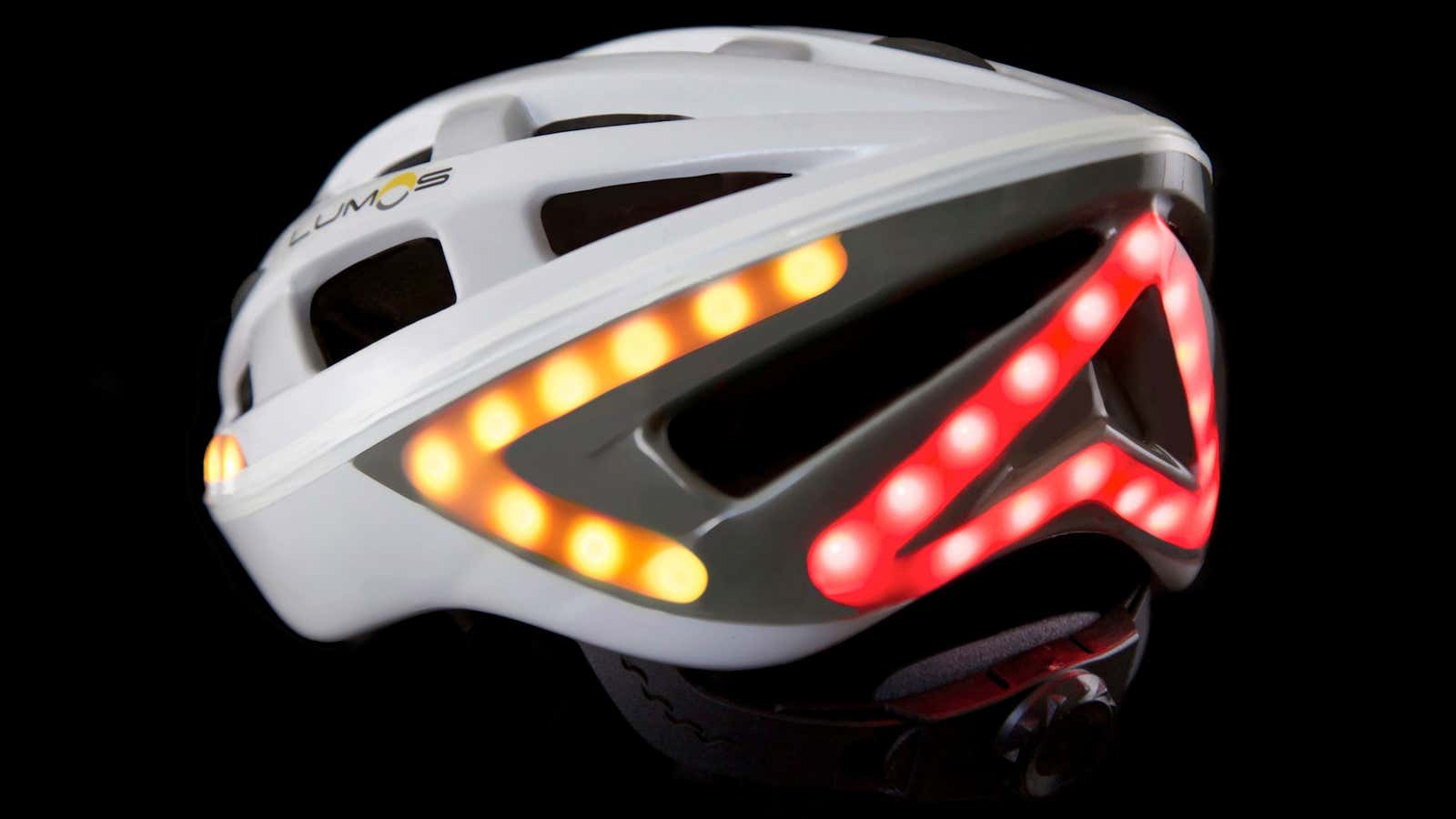Biking at night—or driving behind a bicyclist at night—can be an unnerving and unpredictable experience.
That’s why Lumos, a Boston-based start-up with a Kickstarter campaign, has prototyped a helmet that would help keep cyclists—and others on the road—safe. It includes an automatic brake light, similar to the one in a car, and a manually operated turn indicator light, and it functions as a replacement for a bike’s front and back lights. “It’s a simple, intuitive concept and it’s surprising it doesn’t exist,” co-founder Eu-wen Ding tells Quartz.
The product, which can be pre-ordered on Kickstarter, consists of two pieces: the helmet itself and a small remote attached to the handlebars with two buttons that activate the turn signals on the sides of the helmet. A bright white light in front allows drivers to see approaching cyclists and also illuminates the road ahead for the biker, according to the Kickstarter page. It also has automatic integrated red rear brake lights that detect deceleration using an accelerometer. The lights will activate anytime the cyclist slows down—”so that you don’t have to think about it,” the Kickstarter page says. A full charge will keep the helmet going for 30 minutes a day for a week, the company says.
The project, which is being incubated at the Harvard Innovation Lab, all began at a weekend hackathon, Ding tells Quartz, where he met his co-founder, Jeff Chen. At the time, he was a student at Harvard Business School and Chen was studying mechanical engineering at the university, in Cambridge, Massachusetts.
Ding got the idea for the helmet when a friend told him that she did not plan on biking at night because she had forgotten her lights. And as a cyclist himself, he says, he knows from experience that many drivers are “not necessarily cognizant of cyclists’ rights,” he says.
At the hackathon, Ding pushed the helmet “just for fun” but after he and Chen connected over the idea, they quickly began working on a rough prototype. As they started showing people what they had built, the positive reaction convinced them that there was a market for the helmet, which testers said is reminiscent of a car’s brake-light system, Ding tells Quartz.
As well as the Kickstarter campaign, Ding says he and his partners—Chen and Peter Macon, a strategic advisor with a background in materials and creating helmets–have spent nearly a year working with a manufacturer on product development. No release date for the gadget has been set.




